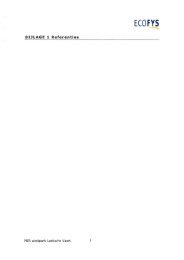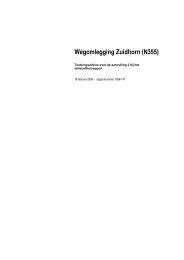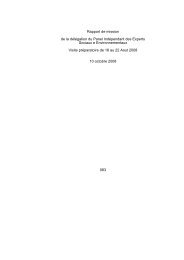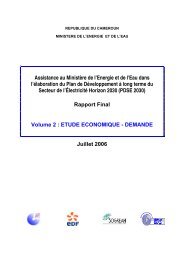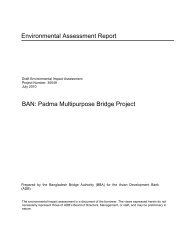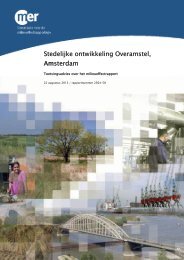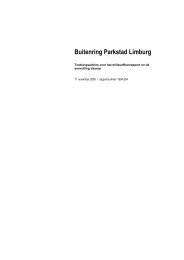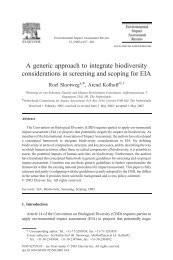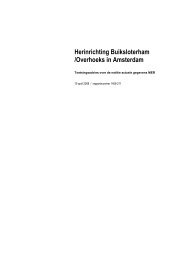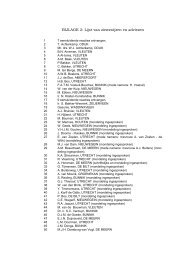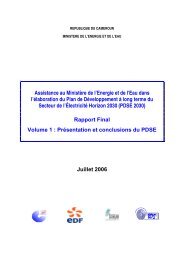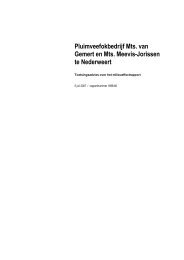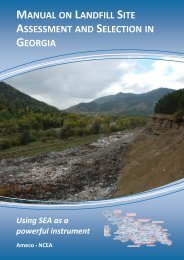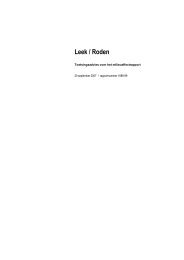Scoping Advice for the Dutch IWRM Support Programme Rwanda
Scoping Advice for the Dutch IWRM Support Programme Rwanda
Scoping Advice for the Dutch IWRM Support Programme Rwanda
You also want an ePaper? Increase the reach of your titles
YUMPU automatically turns print PDFs into web optimized ePapers that Google loves.
very low. In this light <strong>the</strong> master plan, soon being <strong>the</strong> only document at hand suggesting concretemeasures at catchment level, may become <strong>the</strong> reference point <strong>for</strong> all <strong>IWRM</strong> work <strong>for</strong> <strong>the</strong> next 5years, while <strong>the</strong>se measures are being identified from a weak in<strong>for</strong>mation basis.5. The NCEA concludes that <strong>the</strong> reliability of <strong>the</strong> in<strong>for</strong>mation base <strong>for</strong> <strong>the</strong> <strong>IWRM</strong> master planwill be limited. While this seems sufficient <strong>for</strong> general planning at national level, decisionmakingshould take into account that <strong>for</strong> catchment level planning, more detailedin<strong>for</strong>mation will be needed through an up-to-date monitoring system.6. Fur<strong>the</strong>rmore, <strong>the</strong> NCEA concludes that fur<strong>the</strong>r detailed catchment assessments are anabsolute necessity be<strong>for</strong>e any final planning decision can be taken at catchment level.2.3.2 Master Plan MethodologyThe Master Plan development process has a strong hydrological focus and reasons from <strong>the</strong>perspective of water as a harvestable resource. It identifies water users, roughly divided intoconsumptive users (taking water) and in-stream users (example: fisheries & navigation).Environment is in this view considered as a water user requiring a minimal flow.The inception report 16 does mention groundwater dependent ecosystems – mainly wetlands butalso some water bodies in valley floors – that may lose <strong>the</strong>ir biodiversity and ecological function ifgroundwater flow is not maintained. Fur<strong>the</strong>rmore, <strong>the</strong> report indicates that “non respect ofenvironmental demand and quality parameters may fur<strong>the</strong>r have major social and economicconsequences”. However, this issue is not fur<strong>the</strong>r elaborated and not reflected in <strong>the</strong>methodology.There<strong>for</strong>e, <strong>the</strong> approach runs <strong>the</strong> risk of overlooking important water relatedenvironmental/ecosystem 17 services on which people depend. Especially regulatory services suchas flood buffering, surface water storage, sediment removal, and water purification service will belargely missed. Also local water related production services providing livelihoods to <strong>the</strong> rural poormay not be taken into account.Irrigation development is considered in terms of amount of water needed. Irrigation developmentas planned by <strong>the</strong> agriculture department would also involve large scale wetland conversion. Thisconversion may significantly influence <strong>the</strong> hydrology of a river system as it affects <strong>the</strong> waterstorage, release and infiltration capacity of a river basin, leading to more extreme peak flows (and16Consultancy services <strong>for</strong> development of <strong>Rwanda</strong> national water resources master plan, tender number 021/rnra/2011-2012,inception report, SHER Ingénieurs-Conseils s.a., October 201217 Worldwide, different terminology is used <strong>for</strong> slightly different but highly similar concepts. The millennium assessment uses <strong>the</strong>terminology ‘ecosystem services’, while in <strong>the</strong> water sector, ‘environmental services’ is more commonly used. In this report,<strong>the</strong> NCEA will means <strong>the</strong> same thing with both terms.10



